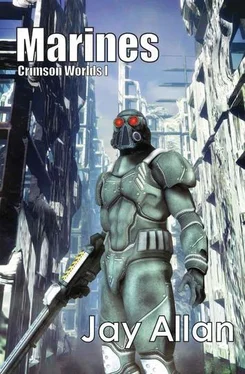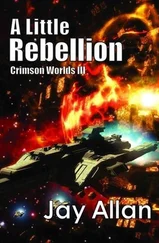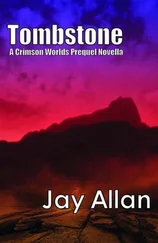My father was ludicrously over-educated for his new job managing the outdated technology systems of the plasti-steel plant, but he was lucky to have any employment at all. As violators of multiple statutes, my parents were not eligible for any form of government assistance, so without a job we would go hungry. I don't recall hearing my father complain about working 12-hour shifts for sustenance wages, but I don't remember ever seeing him smile again either.
The neighborhood was a nightmare, totally overrun by warring drug gangs. It had been eighty years since the police department had withdrawn from regular coverage of the areas outside the Protected Zone, and the gangs completely owned the place. My parents quickly learned that residents paid the local gang leader for protection if they wanted to survive, and if two gangs were fighting over the turf they paid both just to be safe.
Long before the police departed, most other city services had already been suspended. There was no operating mass transit, no real hospitals, and no outside lighting. The streets had deteriorated to the point that they were impassible to vehicles, and in many places even walking was a challenge. There was an electrical grid of sorts, and we usually had about 4 hours of power each day, though there were times we went a week or more without. We had battery-powered heaters, so if the electric stayed off for a couple days in winter and we couldn't recharge them, we just bundled up against the cold. The water service was usually working, though we only had hot water if the heaters were functioning. It was brackish, untreated water, but filtering it helped considerably, leaving just a mildly oily taste.
Most of the residents of the neighborhood were Cogs, uneducated workers born there who worked at menial and dangerous, jobs and who had a life expectancy less than half that of Zone dwellers. But there were Outcasts as well, skilled workers like my father who had been expelled from the MPZ for one infraction or another and who now survived however they could in a world for which they were wholly unprepared.
Then there were the Gangs. There wasn't a lot of hope in the neighborhood, and to many the Gangs offered the promise a better existence…or at least the chance to be one of the bullies instead of the bullied. The truth was that life in the Gangs was violent and usually short, and Gang members caught by the authorities were typically summarily executed. Still, there was no shortage of recruits.
The Gangs fought each other also, and two of them warred over our neighborhood - the Reds and the Wolfpack. The Reds were bigger, but the Wolfpack seemed smarter and better led, and there was a stalemate between the two, neither able to gain an advantage. The constant warfare was hard on the locals, who not only bore the extortion from both sides, but were also stuck in the crossfire.
For three years my family lived in this new reality, and as people usually do when confronted with a previously unimaginable situation, we adapted. The lost luxuries of life in the Zone were slowly forgotten, and we began to learn how to make life bearable in our new home.
My mother never really accepted things, and she withdrew more and more into herself until she barely spoke at all. But my father tried tirelessly to make our lives more comfortable. The work, the regret, the resentment…I know it devoured him, but he never really let us see that, and he never quite gave up.
My father was an educated man, and I think what got to him the most was the fact that, with no schooling available outside the Zone, my sisters and I would have no real hope of a better life. Despite the hours he worked, he made time to tutor the three of us every day. Somehow he even scraped up enough to buy me a small solar-powered infopad, and I'd sneak up to the roof and connect to the Net whenever I could. For three years, that was our life, and as much as possible it had become normal to me.
I was up on the roof with my 'pad late one day. My mind wandered into a daydream, and I wasn't really paying attention to what I was reading. I was gazing absent-mindedly across the sea of battered, half-standing buildings that stretched as far north and west as I could see, and then I heard it. A quick shout, then a crashing sound, and after that, a blood-curdling scream.
I jumped up and ran to the hatch that led back into the building and, grabbing the rope handle, I yanked it open. Gunshots, then more screams. I climbed over the edge onto the ladder, listening to my raspy breathing and feeling my hands go numb from panic. More shots. No more screams, just scuffling sounds and a door slamming. In my rush I put my foot down too hard on a half rotten rung, and it snapped in half. I tumbled off the ladder about halfway down to the top floor landing. My 'pad slipped out of my hand and shattered when it hit the floor.
I was stunned for a minute, then when I tried to get up I realized I'd twisted my ankle. The fall probably saved my life. By the time I managed to get downstairs, it was over.
I managed to get up, favoring my injured ankle, and climbed down the ladder to the fourth floor. A sharp pain ran up my leg with each step, but between fear and adrenalin I wasn't troubled by it. I could hear the thunderclap of my heart in my ears as I hopped off the ladder onto my good foot and stumbled to our apartment. Our door had been kicked open and was hanging loosely at an angle, still connected by one hinge like a child's tooth almost ready to come out. Inside, the apartment was a nightmare.
There was blood all over the floor and walls. The furniture was knocked over and scattered around, and the tattered rug was covered with the shards of what looked like every breakable item in the place.
My mother was in the kitchen, lying on the floor next to the counter. There was blood all around her, and though I could tell she was dead, I couldn't see exactly where she'd be shot. I couldn't bring myself to touch her or even look, and I forced myself to turn away. That was the last glimpse I had of my mother.
I stumbled back out into the main room and saw my father. I'd missed him when I had first run into the apartment. He was lying next to an overturned desk, looking straight up at me, lifeless eyes wide open and two bullet holes in his head.
The whole thing is a blur to me now, and I really don't know how long I was in the apartment. It could have been just a few minutes, or it could have been much longer. To this day I really can't remember.
I frantically looked for my sisters, and I found them in our sleeping room, lying under the remnants of the mattress where they'd been shot at least ten times as they tried to hide. There were bloody pink bits of foam everywhere.
After 30 seconds, five minutes, an hour - I really don't remember - I stumbled out of the apartment. I didn't take anything with me; I didn't even look to see if we'd been robbed of our meager possessions. I just hobbled out into the hall, down the ladder and stairs, and out into the street. It was a sunny day and I recoiled from the brightness that assaulted my eyes. In a daze I ran around to the back of the building into the dark comfort of the shade, and I fell roughly to my knees and bent over as my stomach emptied.
I must have wandered around for days - or weeks - stumbling through the streets, scavenging something, anything, to eat, and at night hiding in whatever spot I could find. I never went back to the apartment, or even near the building.
At first I was sure I was going to die, and truth be told, I didn't really care. More than once I thought to myself, just lie down and stay there until it's over. Or climb up to the roof of one of the buildings and end it in an instant. But something kept me going, pushing me forward. It's not like I really had any hope or any real reason to live.
Читать дальше












